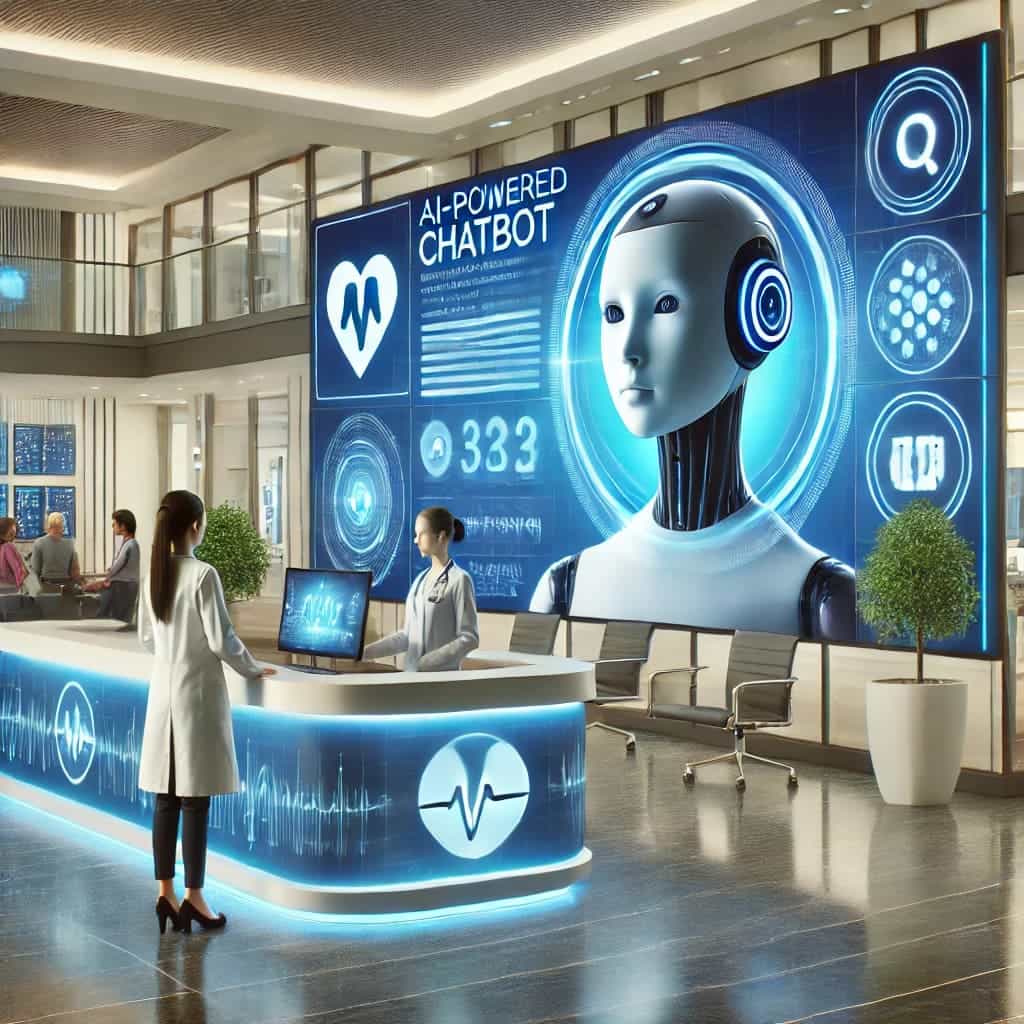
Understanding the Role of AI Chatbots in Healthcare

Advantages of AI Chatbots in Healthcare

Challenges and Limitations

Case Studies and Examples

Conclusion

FAQ
November 11, 2024

5 minutres minutes to read
AI-powered chatbots have become integral to the healthcare industry, offering innovative solutions for improving patient care and streamlining communication between patients and providers. These virtual assistants provide immediate responses, assist with appointment scheduling, offer preliminary diagnosis support, and answer basic medical questions. The implementation of chatbots has proven to reduce the workload on medical staff, enhance patient experiences, and improve overall healthcare system efficiency.
AI chatbots in healthcare use natural language processing (NLP) and machine learning algorithms to simulate human conversation. They can perform various functions, such as guiding patients through symptom checkers, providing post-treatment care instructions, sending medication reminders, and assisting with administrative tasks. The shift toward digital health solutions has been fueled by the rising demand for remote healthcare services, particularly following the global COVID-19 pandemic.
Current Statistics and Real Data:
1) Market Growth: According to a report by MarketsandMarkets, the global healthcare chatbots market is expected to reach $314.3 million by 2027, growing at a compound annual growth rate (CAGR) of 21.8% from 2022. This exponential growth indicates a strong push toward digital health solutions that enhance patient care while optimizing resource allocation.
2) Patient Preferences: A survey conducted by Statista in 2023 highlighted that 69% of patients prefer chatbots for obtaining quick answers to common health-related questions and for scheduling appointments. This statistic underscores the growing acceptance of digital tools as part of patient interactions with healthcare providers.
3) Adoption by Healthcare Providers: Research from Accenture in 2023 showed that 80% of health systems in developed countries are either actively using or planning to expand their use of AI-powered chatbots. The survey emphasized that healthcare providers view chatbots as an effective way to engage patients and improve operational efficiency.
4) Cost Savings: Studies by McKinsey indicate that the integration of AI in healthcare, including chatbots, could help the industry save up to $150 billion annually by 2026. This figure is attributed to the automation of repetitive tasks, reduced administrative costs, and more efficient patient management systems.
5) Global Reach and Accessibility: The World Health Organization (WHO) in its 2023 report on digital health advancements noted that AI-driven chatbots can help bridge the gap in healthcare accessibility, especially in regions with limited medical resources. The report pointed out that chatbots can provide basic medical guidance, helping reduce the load on overburdened healthcare facilities and making medical advice accessible to more people.

1) 24/7 Availability: One of the most significant benefits of AI chatbots is their ability to offer round-the-clock support. Unlike human staff, chatbots do not require breaks or time off, making them ideal for responding to patient inquiries at any hour. This constant availability can improve patient satisfaction and reduced emergency room visits for non-urgent issues.
2) Enhanced Efficiency: By handling basic tasks such as appointment scheduling, symptom assessment, and answering frequently asked questions, chatbots free up medical professionals to focus on more complex patient cases. This efficiency can improve the workflow within clinics and hospitals and help reduce patient waiting times.
3) Personalized Patient Experience: Modern chatbots use machine learning algorithms to provide personalized interactions based on patient history and preferences. This personalization can help build trust and improve patient adherence to treatment plans. For example, chatbots can remind patients to take medication or follow specific care routines, improving treatment outcomes.
4) Data Collection and Analysis: Chatbots can collect valuable patient data, such as symptoms, medication history, and treatment feedback. This data can be analyzed to detect patterns and trends, providing healthcare providers with insights that can guide future treatment strategies and improve overall patient care.
While the advantages of AI chatbots are substantial, they do come with certain challenges. One of the primary concerns is the accuracy of the medical information provided. Chatbots are not a substitute for medical professionals, and improper responses could lead to misinterpretations or inadequate patient care. Ensuring that chatbots are thoroughly vetted, regularly updated with the latest medical guidelines, and monitored by healthcare experts is crucial for maintaining high standards of patient safety.
Ethical Considerations:
The deployment of AI in healthcare also raises ethical questions regarding data privacy and security. With chatbots collecting sensitive patient information, ensuring robust data protection measures is essential. The European General Data Protection Regulation (GDPR) and other similar regulations in different regions play a key role in shaping the standards for data privacy in healthcare. Developers and healthcare providers must prioritize compliance to safeguard patient data and maintain trust.
 Several successful implementations of AI chatbots in healthcare highlight their potential. For example, in 2023, a leading hospital in the United States integrated a chatbot into its patient intake process. The chatbot was able to screen patients based on symptoms, prioritize cases, and route them to the appropriate specialists, resulting in a 15% reduction in wait times and a significant improvement in patient satisfaction scores.
Several successful implementations of AI chatbots in healthcare highlight their potential. For example, in 2023, a leading hospital in the United States integrated a chatbot into its patient intake process. The chatbot was able to screen patients based on symptoms, prioritize cases, and route them to the appropriate specialists, resulting in a 15% reduction in wait times and a significant improvement in patient satisfaction scores.
Another example comes from a telemedicine provider in Europe, which used chatbots to manage patient follow-ups after virtual consultations. The company reported a 20% increase in patient engagement and adherence to prescribed treatments due to the personalized reminders and check-ins facilitated by the AI.
The Future of AI Chatbots in Healthcare
As AI technology continues to evolve, the capabilities of chatbots are expected to expand further. Integration with advanced diagnostic tools, telemedicine platforms, and remote monitoring systems can enhance their functionality and make them even more indispensable in the healthcare sector. The focus will likely shift toward developing AI chatbots that not only respond to patient queries but also assist in predictive analysis and early intervention strategies.
AI-powered chatbots have proven to be a valuable addition to the healthcare ecosystem, offering enhanced accessibility, efficiency, and patient satisfaction. The significant market growth, patient acceptance, and potential cost savings highlight their impact and relevance. However, as technology advances, maintaining ethical standards and ensuring data security will be paramount. With continuous improvements and thoughtful integration, AI chatbots are poised to play a transformative role in the future of healthcare.
How do AI chatbots help reduce the workload on healthcare professionals?
What challenges do healthcare providers face when implementing AI chatbots?
How have AI chatbots impacted patient satisfaction in healthcare?
Can AI chatbots replace human healthcare professionals?
What measures should be taken to ensure the safe use of AI chatbots in healthcare?

LOOKING OFFSHORE SOFTWARE DEVELOPMENT?
We are ready to help! Get consulted with our specialists at no charge.


Your subscription is confirmed.
Thank you for being with us.